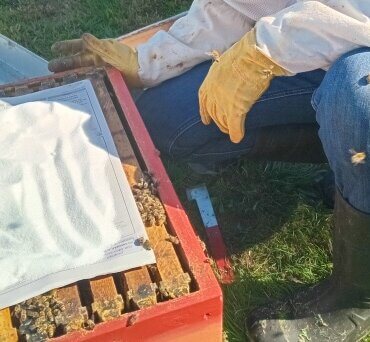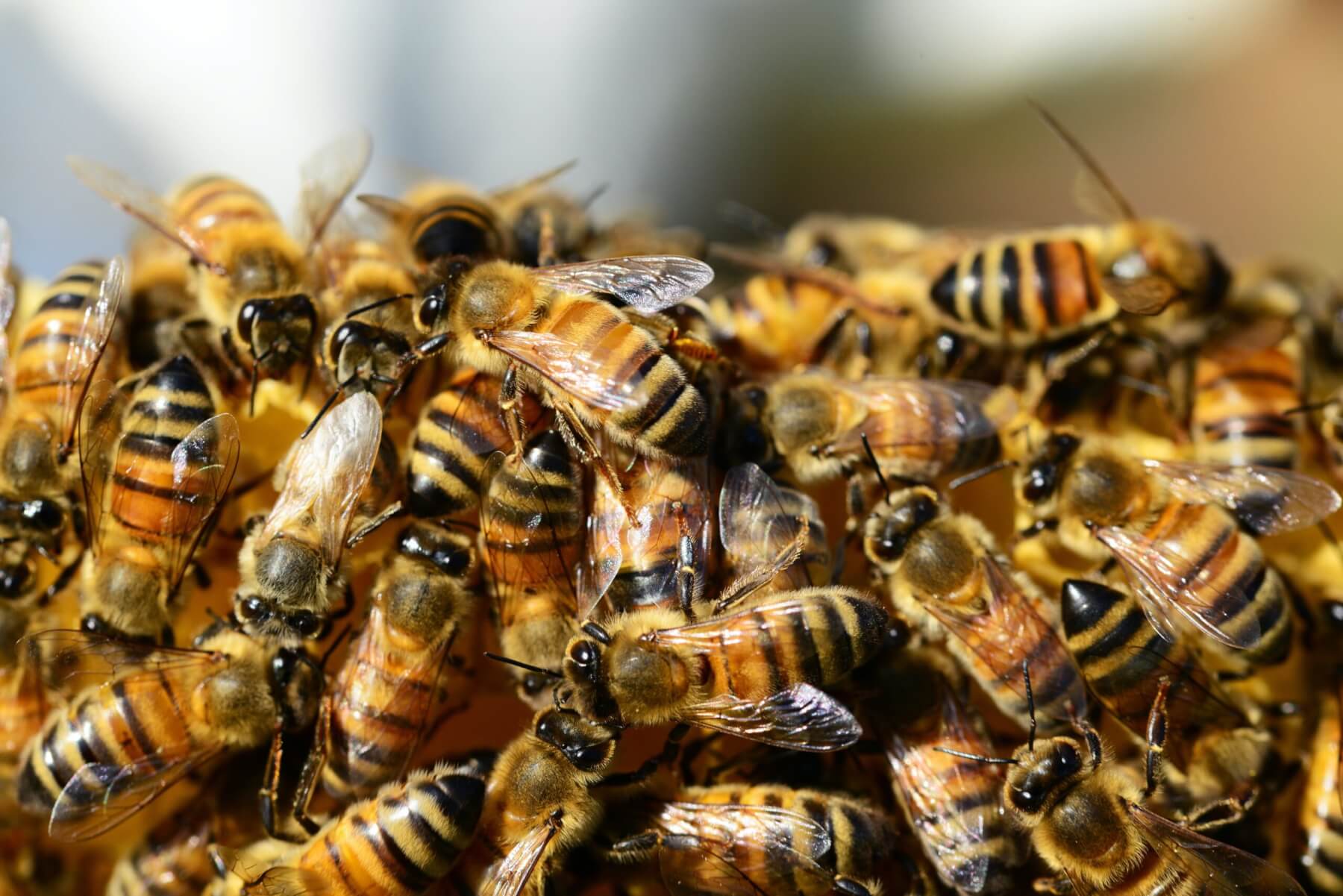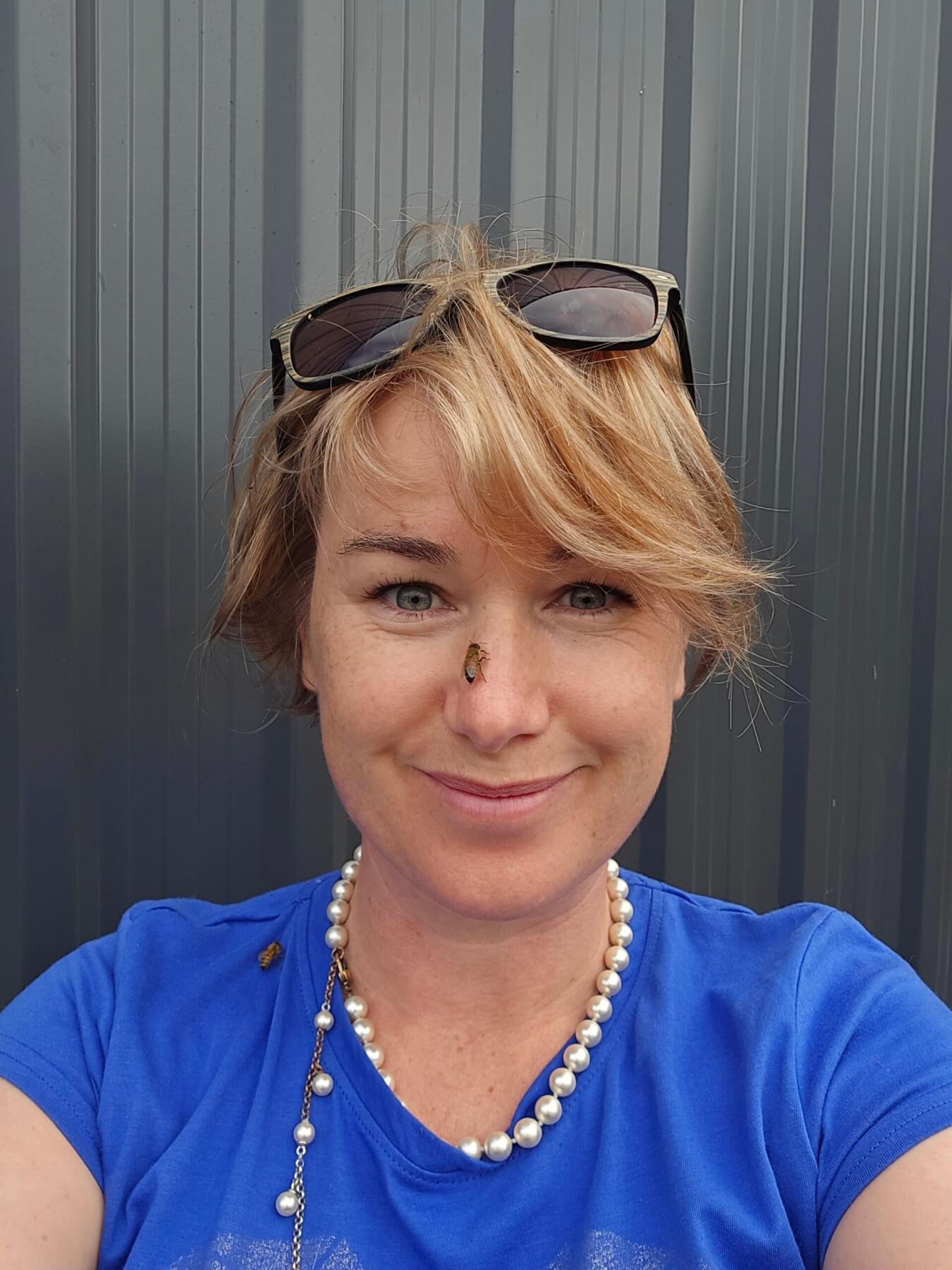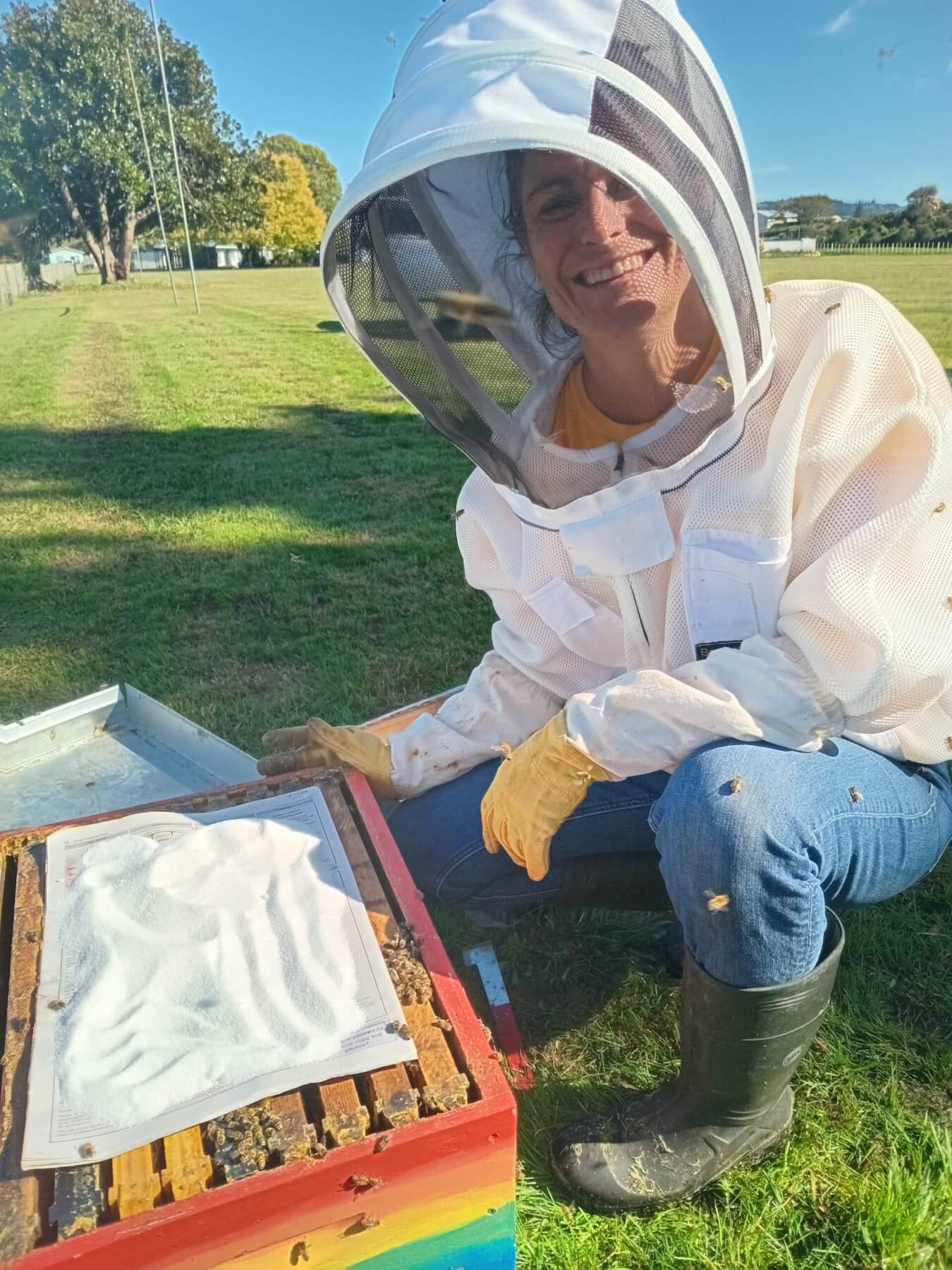
Natalie Southgate
Ōtorohanga bee keeper Natalie Southgate persuaded her district council to tweak its Animal Nuisance Bylaw.

Bees. Photo: PIxabay
A revised bylaw including guidance notes asking beekeepers to stop bees pooping on neighbours’ properties is being described by a leading beekeeper as draconian.
Ōtorohanga District Council updated its Animal Nuisance Bylaw last week, asking beekeepers in the Ōtorohanga and Kāwhia townships to manage bee flightpaths by repositioning hives to face away from neighbouring properties.
The bylaw is based on similar legislation passed by Waipā District Council in 2022.
Waikato Domestic Beekeepers’ Association president Dr Dara Dimitrov said instead of passing draconian regulations councils could be working with beekeepers and their hives to achieve United Nations Sustainable Development Goals.
“They treat bees as stock, and I don’t think they should,” Dimitrov said.
Such regulations were introducing an unnecessary layer of regulation on top of national rules for nearly 8200 beekeepers keeping nearly 520,000 hives.
“Councils should work with local beekeepers and find a middle ground. Councils need to take a more functional and operational approach to beekeeping,” Dimitrov said.
“It’s good for the community, it’s great for the environment.”
Bees are known to pollinate up to three kilometres from their hives.
“That pollination service is free,” Dimitrov said.
She praised Hamilton City Council for working with beekeepers and publishing a list of swarm collectors on its website.
“Our members are happy to move those bees for free.”
Ōtorohanga bee keeper Natalie Southgate persuaded the council to tweak the bylaw.
She disagreed with the condition that beehives must be placed no closer than 25 metres from the property boundary or separated from the property boundary by a solid 1.8 metre fence.
“Instead of requiring a solid fence, I’d encourage the council to consider natural screening, like hedges or shrubs, as a valid alternative,” she said.

Tony Quickfall
Council regulatory and growth group manager Tony Quickfall was happy to give beekeepers an alternative to a solid fence by adding natural screening.
Southgate also disagreed with a condition that suitable water source must be provided near the beehives that is accessible at all times.
“This really should be optional,” Southgate said.
“Even when water is provided, bees will often prefer puddles, drains, or animal troughs. Open water sources like birdbaths or buckets can be hazardous — bees drown easily if there aren’t textured edges or safe places to land.”
Quickfall said the requirement or water could come out, as it was not related to bees being a nuisance, but mayor Max Baxter suggested it stay in, and natural water supplies considered too.
Southgate said the council should aim for practical and flexible rules based on real-world experience.
“We all support safe, responsible beekeeping — but it’s education and cooperation that lead to better outcomes, not overly rigid regulations,” she said.
“Let’s make it easier, not harder, for people to keep bees well.”
On the bylaw’s guidance notes Quickfall said: “Those are just guidance notes. While they are in the bylaw, there’s no regulatory control in those notes.”
“Bees are our friends, so we are not trying to control or manage bees or make it harder,” he said.
Quickfall said the council didn’t do proactive monitoring.
“The way this bylaw is intended to work, it’s if we get a complaint, and if we regulate, we are expected to respond and manage complaints,” he said.
“If someone complained to us that there was bee excrement on clothing out on the washing line that’s hard to get rid of, or someone who’s living next to a beehive who might be anaphylactic, or sensitive like schools or rest homes. That’s what this bylaw is intended to cover.”

Sarah Cross
Beekeeping education and consultancy service business Sarah C’s Bees founder Sarah Cross supported Southgate’s submission
“There is no way to manage flightpaths,” Cross said. “The fence is to make the bees fly up, so as not to fly directly into people walking past, but once they are up and out, they can, and will, go in every direction searching for food.
“The council needs reminding about the amazing work that bees do pollinating our food resources. I take bees into schools to add to the education that kids are receiving about the ‘paddock to plate’ and enviro school ideas. Our food doesn’t magically appear in the shops; there is a whole connected environment required and a huge part of that is bees and pollination.”
“Bees should be treated with respect and kindness because without them the world would literally starve,” Cross said.

Ōtorohanga bee keeper Natalie Southgate persuaded her district council to tweak its Animal Nuisance Bylaw.








